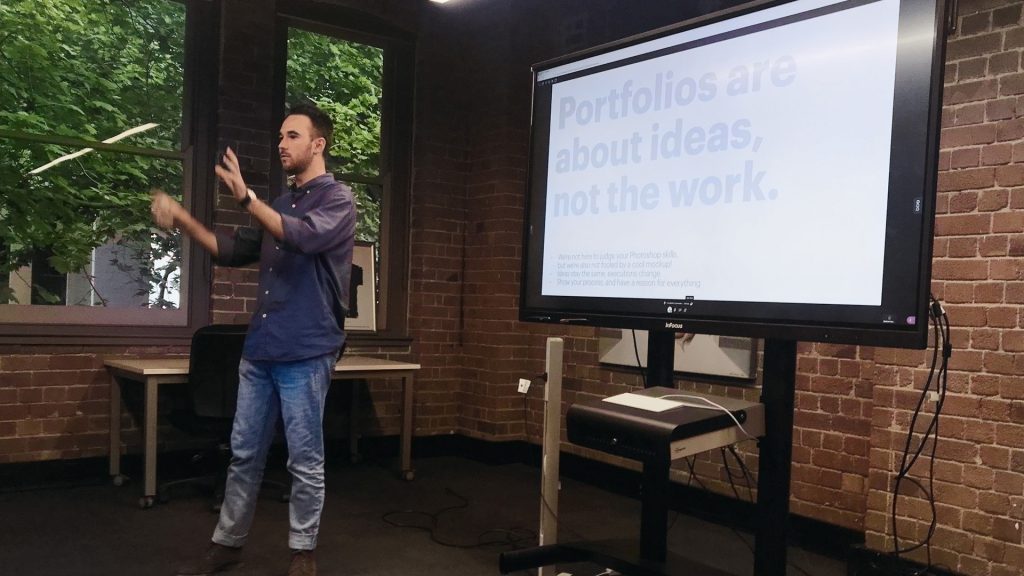

Breaking down the myth of high-level creativity
Nick Mooney, Designer at Hulsbosch
Business leaders are realising that success means building the best teams most effectively but what is the best way to recruit them?
Nick Mooney is the young, passionate new talent companies, recruitment firms and agency leaders like Hulsbosch are looking for. So, what are the obstacles faced by this new pool of potential employees to attain jobs in the industry.
It’s a welcome perspective and an opportunity to hear from a grouping that are prized, sought-out and some say, matter most in managing the industry’s talent on war today.
He thinks promoting the ‘bells and whistles’ of a company can be the very things that are simply not of interest to new candidates. He says, it’s time to drop self-serving attitudes and keep the creative process raw and wild to successfully mentor and support new talent.
New talent will always look for jobs at the biggest and the best agencies with the most refined and recognised work, but a gold medal win for securing and retaining new talent goes much deeper than a shiny website and heavy bag of work benefits.
When great agencies and creatives remove their pedestals and comfortably share raw, unfinished work behind closed doors – new talent is allowed the space to let their potential show itself.
The creative industry showcases impeccably refined work and animated case studies with standards beyond anything within the grasp of what is achievable for new talent. If the same attitude is adapted in the creative environment and the sometimes-ugly process of creative development is not shared within, this great work will remain to be seen as unachievable.
The key to unlocking the full potential of new talent is not only de-mystifying creativity, but also helping to confirm their own creative process is the same as senior creatives. The most senior in the team should share their unfinished, raw, and unrefined process as openly as the most junior team member without fear or favour – no egos really meaning no egos.
You may laugh, as it is a woke world of over sharing but the sharing process is not to be underestimated and especially within a creative studio environment. It’s about building creatively inclusive spaces where no one gets the answer on the first go, and where rejection is a falsehood. Inexperienced people will get the confidence to try make great work when they see experienced people create not-so-great work.
So much messaging from agencies in the industry is directed towards new talent and geared around developing creative confidence, risk-taking, and feeling comfortable to make mistakes. However, more energy should be put towards sharing process knowledge and how certain results are achieved. It’s becoming evident in a post-covid, remote working environment that this sharing of process is becoming increasingly rare.
I currently manage the design internship program at Hulsbosch which is a longstanding, robust and highly engaging program that mentors and supports our industry’s future talent.
Through this contribution, I’m very aware I have a pivotal hand in helping to ‘future fit’ new candidates as they enter the world of creativity.
After giving a recent lecture at Billy Blue College of Design in Sydney, I understand that future talent is as keen as ever, and perhaps isn’t looking for what everyone thinks.
This fact was brought to the surface nicely in *PWCs latest ‘What workers want’ Report. It found that employees highest ranked **EVP preference was simply ‘working with good co-workers’. Could it be that the focus on specific issues such as wellbeing, upskilling, or future -of-work benefits are distracting from what talent is really after – working in a creatively supportive environment with good peers and mentors.
Significant changes for employment cater to those looking for a better life/work balance, remote work, special leave, or independent/flexible work. Most of these should be assumed to retain and attract great people in a competitive market, but new talent often sees straight through the smoke and mirrors, and it leaves us to question what’s left behind.
What’s most attractive and beneficial in today’s workplace is not costly or elaborate but is as important as things that do cost. It’s open collaboration and a truly inclusive work environment that creates a sense of achieving greatness together.
*PriceWaterhouseCoopers
**Employee Value Proposition